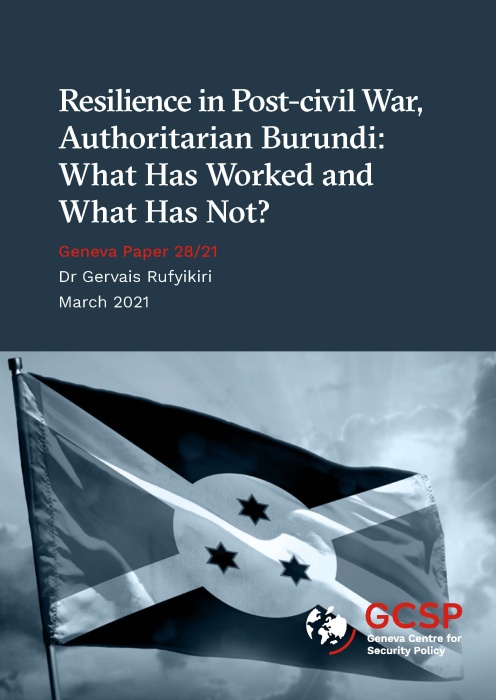Resilience in Post-civil War, Authoritarian Burundi: What Has Worked and What Has Not?
In Burundi the rise of authoritarianism during the post-civil war period fuelled endless political tensions that resulted in intermittent violent but low-intensity conflicts. This Geneva Paper focuses on identifying and understanding the drivers of the positive outlook that characterises Burundians even though the country has often been on the brink of relapsing into a major civil war. The most striking observation is that Burundians have demonstrated a notable capacity for resilience. Resilience theory is briefly discussed, followed by sections on the dynamics of violent conflicts in Burundi, resilient post-war politics, and attempts to heal the country after the ending of the civil war. The role of non-state domestic actors, international actors and community-level actors are then discussed in this regard.
The main drivers of this resilience are
(1) the positive outcomes of peacebuilding and reconciliation efforts;
(2) the general legitimacy of the country’s leadership and its endeavours;
(3) people’s general satisfaction with their lives despite the threats of a return to civil war;
(4) lessons learned from the previous civil wars;
(5) what citizens see as their future prospects and cultural values; and
(6) external assistance.
The paper ends with a positive note on peacebuilding efforts. National and international actors must unite their efforts to safeguard and consolidate positive progress, draw lessons from past failures and work towards a new phase in national affairs capable of propelling Burundi towards lasting stability.


